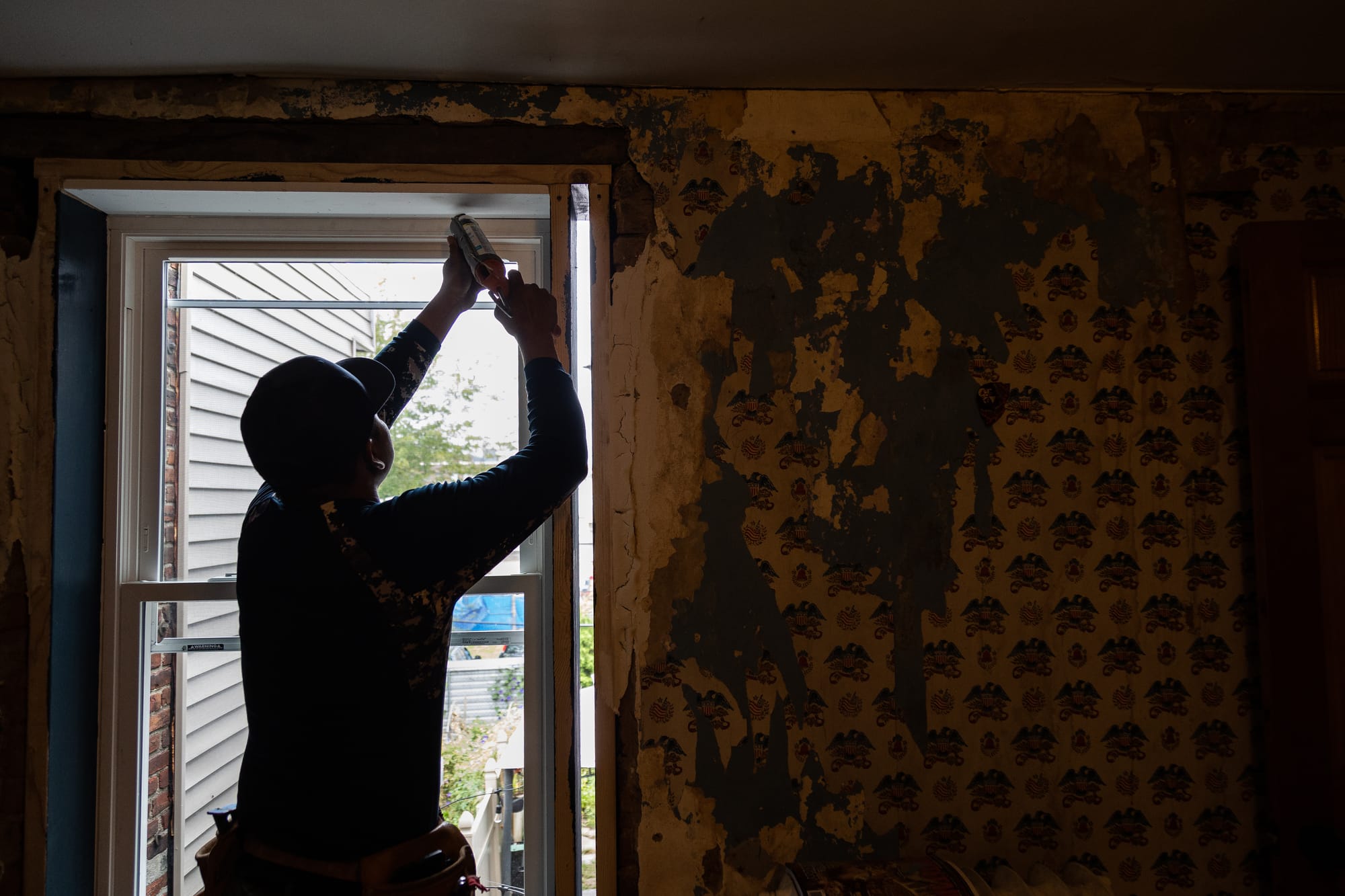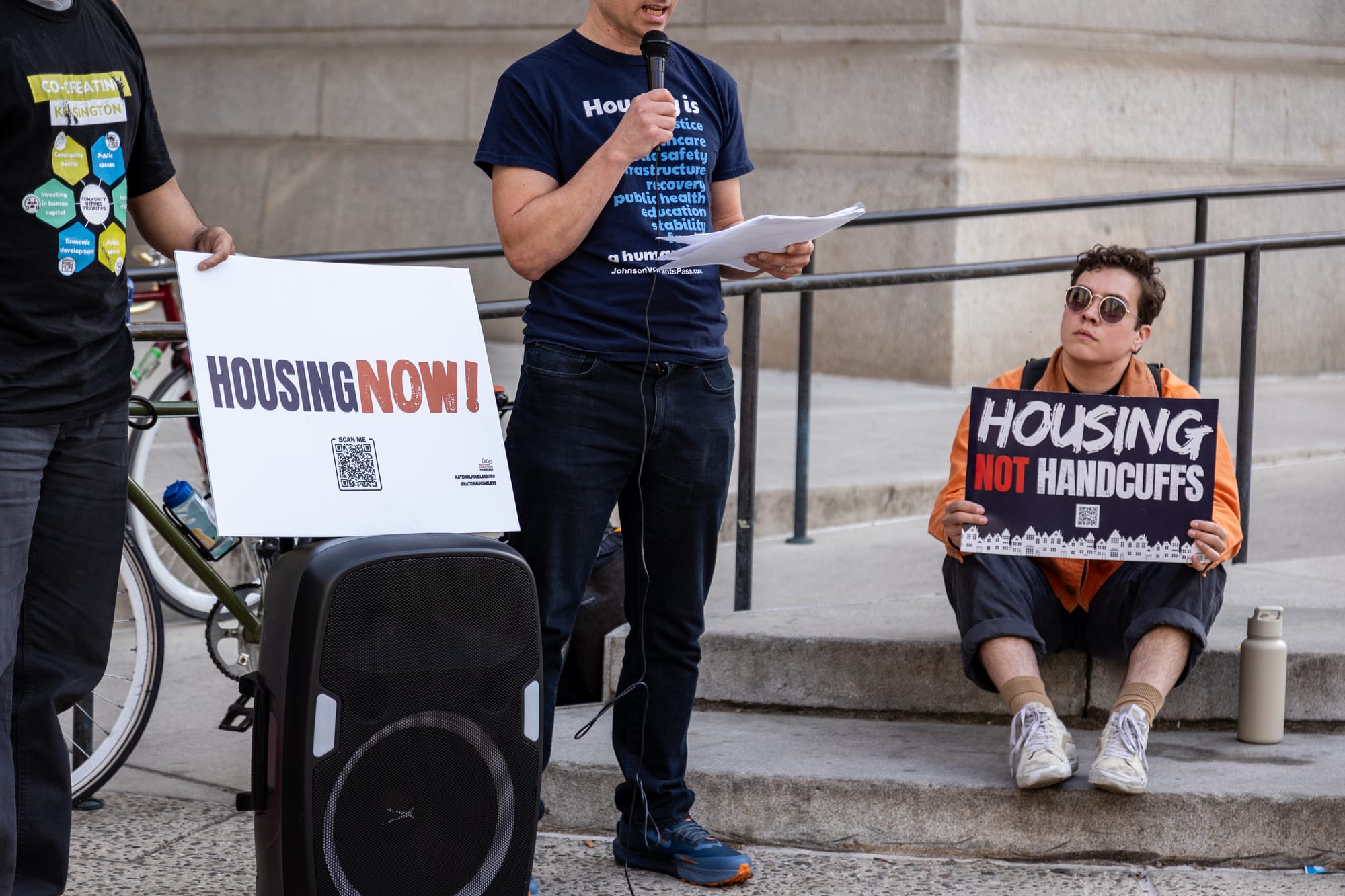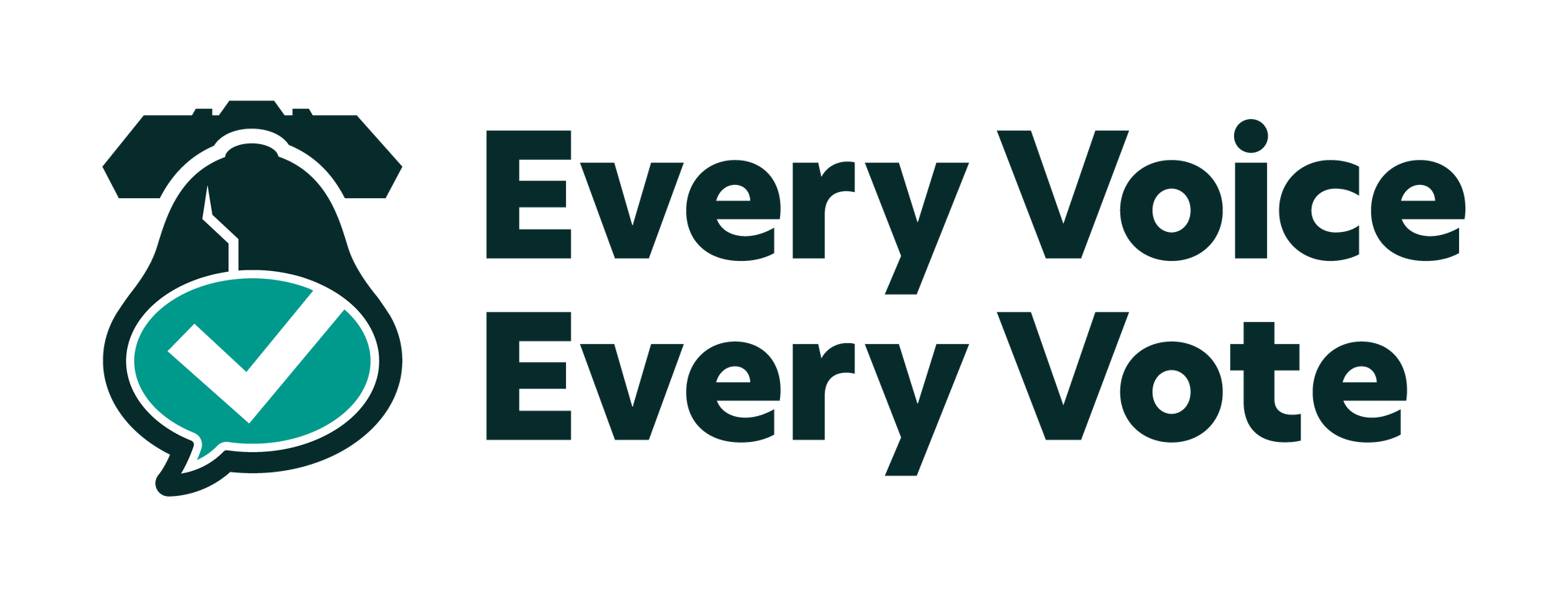What's happening in Kensington: Week of Jan. 19, 2026
MLK Day cleanup, Lost Time comedy show and more.
Mayor Cherelle Parker’s sweeping $2 billion housing plan—the Housing Opportunities Made Easy (H.O.M.E.) initiative aims to preserve and create 30,000 housing units over four years in response to the city’s housing crisis.

Mayor Cherelle Parker’s sweeping $2 billion housing plan—the Housing Opportunities Made Easy (H.O.M.E.) initiative—was approved in June alongside the city’s $6.8 billion budget. The initiative aims to preserve and create 30,000 housing units over four years to address the city’s housing crisis.
To expand production of new rentable and purchasable units, the plan includes strategies to streamline development processes, such as incentives for developers, zoning reform, and speedier public land sales and transfers in coordination with the Philadelphia Land Bank and other groups.
Along with new development, the Parker administration wants affordable units to look more like market-rate housing, with “high-quality fixtures and finishes.” It’s what her administration calls “Affordable Luxury Everywhere.”
Meanwhile, renters in low-income areas such as Kensington are worried that existing problems such as overdue inspections and unjust evictions will be overlooked. More than a third of owned units across the city require significant repairs to maintain safety and habitability, and many Kensington residents rely on city programs to make these critical repairs. The 7th Council District has the most units—more than 2,500—that have utilized the city’s existing preservation programs.
With key issues like affordability, disrepair, and displacement especially acute in Kensington, and funds set to flow this fall, H.O.M.E. could have a significant impact on the neighborhood. Though some community leaders see promise in the investment to expand housing access and decrease crime, they’re also concerned it could accelerate gentrification and push longtime residents out.
“I want this community to be receiving the resources that are necessary to address the challenges that it faces,” said Bill McKinney, the executive director of the New Kensington Development Corporation. “I think that there's some pieces in [the H.O.M.E. initiative] that could absolutely address some of that. But like any plan, it's all going to come down to implementation.”
While housing costs have climbed city-wide over the last decade, Kensington has experienced some of the sharpest increases amid a wave of new development. The neighborhood's largely low-income residents face the mounting challenges of rising prices, deteriorating housing, and the threat of gentrification.
According to city data, nearly 40% of homeowners and renters in the 7th Council District—which encompasses the majority of the Kensington neighborhood—are cost-burdened, meaning they spend more than 30% of their income on rent or mortgage payments. And close to a quarter of those households are severely cost-burdened, meaning more than half of their income goes to housing.
“Kensington is not necessarily representative of the rest of Philadelphia, and I think that's an important part of this,” said McKinney. “There's a lot of limitations of what we're staring at.”
McKinney specifically pointed to the area median income (AMI), which is calculated by the Department of Housing and Urban Development (HUD) based on median family income to determine eligibility for affordable housing programs and is used in this plan.
It’s currently $119,400 for a family of four in the Philadelphia metropolitan region, which includes wealthier suburbs like Bucks County and parts of Delaware, Maryland, and New Jersey. In comparison, the median family income for Philadelphia alone is around $78,000, and the 7th Council District is the poorest in the city. Philadelphia housing justice groups have been calling on the city to change this metric so that people making the least have greater access to affordable units.
“We need to do a lot more to support very low income household housing needs,” said Jon Geeting, one of the leads for an advocacy group called Pro-Housing Philly. “And I would like to see the city be more strategic about what we are doing for each income band range here.”
The plan also aims to expand access to homeownership opportunities, particularly for low-to moderate-income buyers. A new program under the initiative, One Philly Mortgage, is designed to remove barriers for first-time buyers through a city-backed loan with low down payments and low interest rates. The city will also expand Turn The Key, which builds affordable homes geared toward working and middle-income households and Philly First Homes, which provides grants for first-time buyers to help with down payments and other costs–both initiatives are offered to those making the area median income or less.
Maria Gonzalez, the president of HACE CDC in the Fairhill neighborhood, said she hasn’t seen this level of support for housing from the city before.
“It’s very ambitious,” she said.
Gonzalez serves on the H.O.M.E. initiative’s housing advisory group, which is made up of experts across the city who helped inform the development of the plan, and will continue to advise the administration as it’s implemented.
In this role, she said she continues to advocate for development of deeply affordable housing and home repair resources. Streamlining home repair processes—such as creating online application portals for programs—is particularly important under the initiative, she said.
“It's just being strategic and making sure that we fund those buckets adequately so that the people that really need [resources] are able to access that,” Gonzalez said.
Housing Counseling: Free guidance on buying, renting, credit, budgeting and understanding housing rights
One of the most significant areas where community development organizations like HACE will be able to leverage additional funding, Gonzalez said, is through existing partnerships with the Philadelphia Housing Authority (PHA) and the Pennsylvania Housing Finance Agency (PHFA). Community development corporations have worked with both agencies for decades to build affordable housing throughout the city.
Longtime resident and Kensington Independent Civic Association (KICA) president Donna Aument said she’s glad that Mayor Parker is putting an emphasis on homeownership in an effort to “stabilize the neighborhood.”
But she said the city must be very intentional about who purchases the new properties.
“If it’s not affordable the only people who will buy them are people who are making them into rental properties,” she said. “I don’t want no more rental properties. I want home ownership. I want children sleeping in their beds at night.”
Like the rest of the city, most of the houses in Kensington were built before 1960, with a significant portion of buildings constructed pre-1930.
A key strategy of H.O.M.E. is to help owners stay in their current units by focusing on preservation and stabilization, according to the Parker administration. Through the initiative, the city is promising to continue supporting a number of existing repair and improvement programs including the Built to Last program, which McKinney lauded for its focus on repairing homes for low-income owners, while driving down utility costs by making homes more energy efficient.

The plan will also expand the city’s Restore, Repair, Renew initiative, which connects homeowners with low-interest loans for property repairs, and the Basic Systems Repair program, which provides free repairs for low income homeowners to fix electrical, plumbing, heating, limited structural and carpentry, and roofing emergencies.
In addition to preserving owner-occupied units, the initiative also supports continuation of programs focused on improving rental conditions, including the Affordable Housing Preservation program, which provides funds for developers preserving existing affordable housing units, and the Rental Improvement Fund, which gives loans to small landlords to repair rental properties.
Councilmember Quetcy Lozada, who chairs City Council’s Special Committee on Kensington, sees expanded home repair opportunities as key to addressing the neighborhood's ongoing opioid crisis and resulting public safety issues.
“When we see investment in neighborhoods, you start to see some of those negative activities start to kind of move away, right? They start to fade,” said Lozada.
A 2023 study on the city’s Basic Systems Repair Program found a link between implementation of the program and a reduction in neighborhood crime.
One area where housing advocates have been calling for reform in rental housing is property inspection and code enforcement. In contrast to other big cities, Philadelphia’s Department of Licenses and Inspections (L&I) doesn’t have a process for proactively and regularly inspecting properties, resulting in a complaint-driven system. While the city requires landlords to obtain annual rental licenses, there’s no inspection tied to the license, so owners self-certify that their properties are safe and habitable.
However, many property landlords fail to register properties. A 2020 report estimated that 45 percent of rental properties were unlicensed, and only about 7% of rental units get inspected each year, making oversight difficult.
This system has also been found to disproportionately impact low-income tenants. The city’s aging rental stock is prone to quality issues that can lead to health risks—like asthma and lead poisoning—with low-income households having the greatest need for repairs. But vulnerable tenants often underreport hazardous conditions, as they fear retaliatory evictions. Despite being illegal, such evictions still occur.
L&I is set to launch a proactive inspection pilot program, with details yet to come.

Theresa Howell, a member of tenant education and advocacy group One PA Renters United Philadelphia who lives in the Frankford neighborhood, doesn’t think H.O.M.E. goes far enough for tenants.
“I personally feel like [Mayor Parker] doesn't care about renters,” said Howell.
It’s noted in the plan that the administration has made “substantial process improvements” to L&I with “more to come,” but doesn’t specify any changes or additional resources for the agency under the initiative.
Howell said the rental home she moved into 11 years ago had lead contamination that affected her grandchildren's health, but it wasn’t discovered until she reported it to the L&I.
She’s been working with Renters United to advocate for the Safe and Healthy Homes Act—a package of three bills sponsored by Councilmember Nicolas O’Rourke, created with Renters United and housing justice group Philly Thrive, part of which includes a $10 million city budget request for proactive L&I inspections.
In June, Council passed one of the three bills, enabling the city to create an anti-displacement fund for tenants forced to move when their unit is deemed inhabitable. O’Rourke is now calling on the administration to use funding under H.O.M.E. for it.
As that bill awaits Mayor Parker’s signature, the other two bills—one that strengthens tenant protections against landlord retaliation and harassment, and one that authorizes proactive L&I inspections and ties rental licenses to code compliance—are being held in City Council. In the meantime, Howell said Renters United will continue to hold the administration accountable.
“We're going to be the one that's going to stay on them about ‘What are you doing for renters?’ ‘What are you doing for low-income?’,” she said.
O’Rourke has also expressed concern about the process of developing the H.O.M.E. initiative.
“Building is crucial, but just what is being built or repaired, and for whom, is not as clear as he hoped a Council-approved initiative would be,” wrote Jordan Levy, O’Rourke’s communications director, in an email. “Frankly, he believes that this plan moved along too quickly for Council to collaborate in earnest.”
Levy also noted that O’Rourke is concerned the new builds will receive more attention and funding come fall than “preservation, repairs and tenant support” which he feels have been “put on the back burner.”
The initiative does include preventing housing instability and homelessness as part of its “stabilization” strategy. It’s expected to include continued funding the city’s nationally-recognized Eviction Diversion and Foreclosure Prevention programs, and rental assistance programs for low-income tenants at risk of eviction, Fresh Start PHL and the Shallow Rent program. The initiative also aims to expand the Targeted Financial Assistance program, which is part of the Eviction Diversion Program and helps tenants pay rental arrears.
Aument said preventing eviction is key for keeping low-income families from constantly moving around.
“Make one little mistake or have to pay an oversized electric bill and that landlord is ready to chuck you out the door because he’s got people waiting,” she said.
Stable housing on the other hand, and especially ownership, means “children living in their own home and not getting kicked out every month. They make friends, they stay in school.”
While the City of Philadelphia has not released a clear timeline for the H.O.M.E. initiative, funding and further details are expected to emerge this fall.
Have any questions, comments, or concerns about this story? Send an email to editors@kensingtonvoice.com or call/text the editors desk line at (215) 385-3115.

Free accountability journalism, community news, & local resources delivered weekly to your inbox.